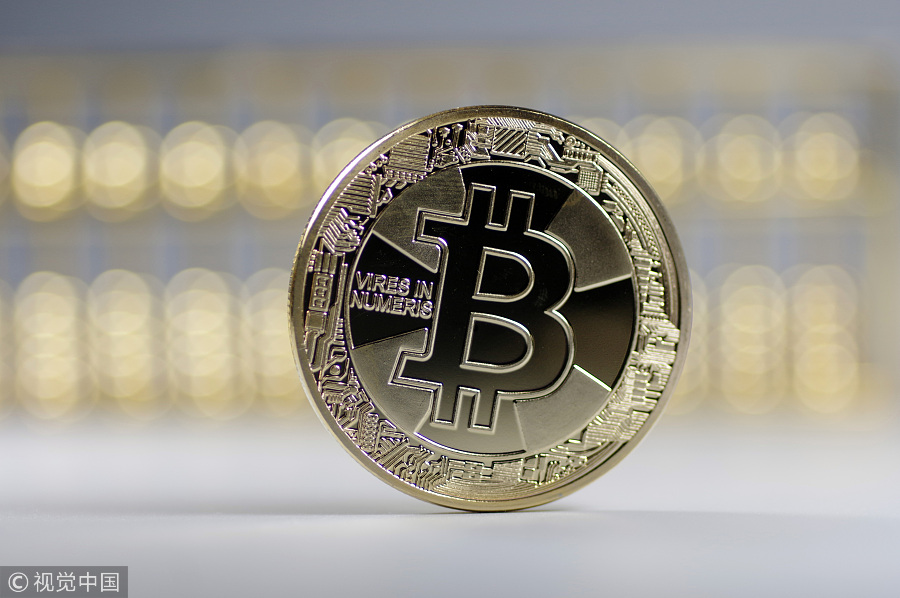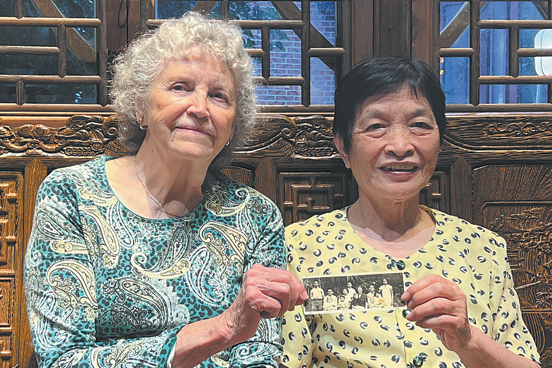Loopring, the new Bitcoin, making change
By Paul Welitzkin in New York | China Daily USA | Updated: 2018-02-10 00:14

While Bitcoin may be the world's most popular virtual currency now, Daniel Wang sees plenty of opportunity for his company's version, which is called ERC20 Tokens.
Wang, who was raised in Liaoning province and previously worked for Google and JD.com as a senior software engineer, is the founder of Loopring, a decentralized exchange protocol.
"I want to use blockchain technology to trade a cryptocurrencies," he said.
Bitcoin and ERC20 Tokens are digital currencies not tied to a bank or government. The coins or tokens can be bought and sold on exchanges with US dollars and other currencies. The type of exchange that the currencies are traded on can matter a great deal, according to Wang.
His Loopring is an open protocol. Wang said a system like Loopring provides several advantages over traditional centralized exchanges which operate in a manner similar to that of a stock exchange.
"Loopring is the protocol for building decentralized exchanges, it enables people to have control over their own crypto-assets during the whole trading process instead of giving their money to centralized platforms which can be the targets of hackers," he said.
"By essentially trading cryptocurrencies in a decentralized way, we are building the financial system of the future," he added.
Loopring is a technology built on the top of what is called a blockchain, Wang said. Blockchains are a public ledger of transactions involving digital currencies like ECR20 Tokens which can be found on the Ethereum blockchain.
"Ethereum has over 1,000 different tokens," noted Wang. The tokens do have a value like money. "The value is mostly determined by the demand," he added.
Bitcoin is the most well known digital currency. "Many people say Bitcoin is the first successful application of blockchain technology," Wang said. "If the demand (for Bitcoin) goes high the value of Bitcoin will go higher as well. However, Bitcoin is not suited for small transactions because its fee is high."
A typical transaction involving ERC20 Tokens involves several key parts of the Loopring ecosystem. When one person wants to trade 10 ERC20 Tokens, the individual creates an order that follows the Loopring standard. The order is forwarded to what are called ring miners who add it to their order books. Each ring miner tries to fulfill the order at the given rate or better by matching the order with others.
"You are guaranteed the best price for your tokens," said Wang. "The trade doesn't happen if it doesn't satisfy your price or other requirements."
A ring is then received by the Loopring protocol contract which verifes the orders and performs trade settlements on the target blockchian.
Currently you can't use Loopring to purchase merchandise from Alibaba or Amazon but Wang believes that will be changing. "In the future I believe that more companies will accept tokens for purchases," said Wang.
As Bitcoin and ERC20 Tokens become more established, retailers and businesses might be more willing to accept them as a legitimate currency. Right now companies like Expedia and CheapAir accept Bitcoin through their web sites and in 2014 computer maker Dell said it would accept Bitcoin through a digital wallet called Coinbase.
Wang said Loopring generates revenue to pay its expenses through what is called an initial coin offering or ICO. The coin offerings represent a way for start-ups like Loopring to raise money without selling stock or seeking private funding.
Wang has raised money for Loopring by creating and selling their own ERC20 Token called LRC, LRN, and LRQ through an ICO and private sales. "That's how we raise funds to pay for salaries and expenses," he said.
Wang got the idea for Loopring when he founded a small company in 2014 that was a centralized cryptocurrency exchange called Coinport.
"During that time I realized there were a lot off issues with the centralized model. From that moment on I was determined to use blockchain technology to solve the trading issues associated with a centralized exchange," said Wang.
























